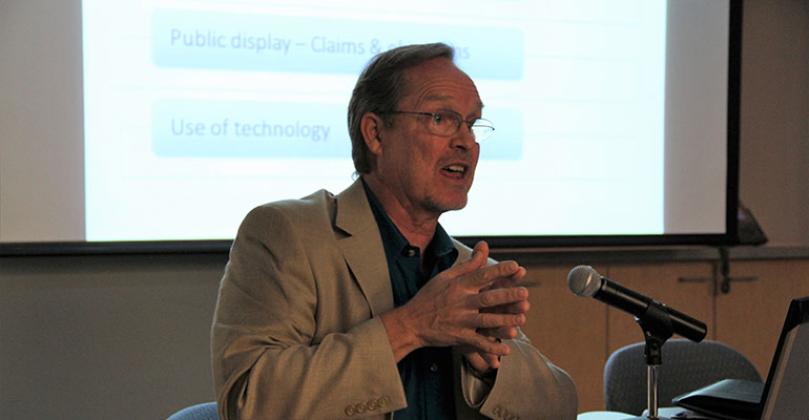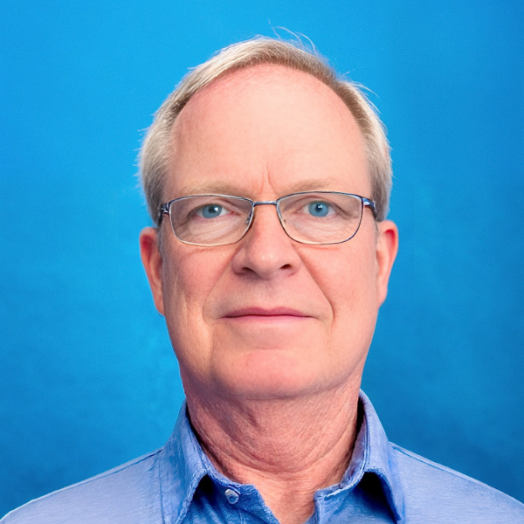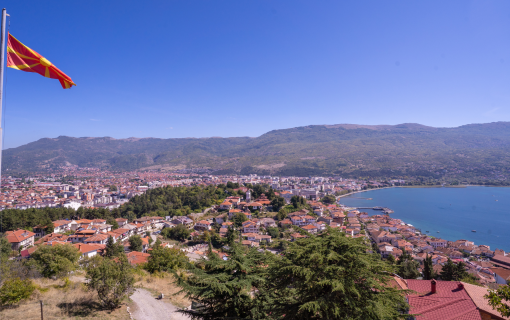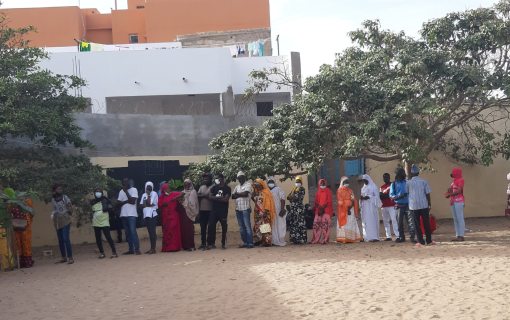
IFES Field Staff
Mike Yard is a recognized international election administration and technology expert with over 25 years of experience. He has advised election authorities in over 15 countries and served as the International Foundation for Electoral Systems (IFES) Chief of Party in Kenya and Uganda. In this Q&A, Yard discusses his experience during South Africa’s historic 1994 general elections, the role of technology in democratic progress in Africa, and other democratic achievements on the continent.
What are some of your most memorable moments working for IFES?
My first assignment with IFES was clearly the most memorable. I arrived in Johannesburg, South Africa on Easter Sunday with three weeks to go before South Africa’s historic 1994 general election. There were six of us thrown together on an ad hoc team to create databases for ballot production, polling stations, results tabulation and seat allocation. Immediately after my arrival, I called for more help and IFES sent a friend and former employee of mine, Mario Tejada, to assist with creation of the systems. We worked 18-20 hour days with no thought of weekends and eventually began to ignore the bomb threats that occasionally caused most departments to empty the building we worked in. The threats were not negligible as the headquarters of the African National Congress, only a few blocks away, were blown up by a car bomb, killing nine and injuring 100, just two days before the election. The same evening some pipe bombs were discovered in the Holiday Inn where many international workers and reporters were staying. But we didn’t have time for evacuations!
In late March, days before our arrival, 20,000 Zulus marched through Johannesburg to bring attention to the Inkatha Freedom Party’s (IFP) boycott of the election and were fired on by snipers leaving 19 dead. On April 16, eight days before the election, IFP planned to march again, and we were advised to stay away from the office, but following that advice was not an option. Fortunately, this march was much smaller and was peaceful. Six days before the election, IFP leader Mangosuthu Buthelezi agreed to participate in the election and almost everybody in the Independent Electoral Commission joined together to stick labels onto the ballots with the name of the new presidential candidate. Finally, on April 27 all of the work came to fruition with millions of black South Africans voting for the first time in their lives. The number was unanticipated, and an additional 9.3 million ballots had to be printed and distributed to support the second day of voting.
The election days were peaceful, and the count and tabulation began. Things were hectic but the systems were all performing well and the information and communications technology team was finally able to relax. Most of the team was at home sleeping on the morning of May 3 when one of our software developers, Neil Cawse, discovered that the vote count jumped suddenly by more than six million votes. Hackers had found their way into the vote counting system and planted votes, increasing the vote count of three parties by almost a third. Our investigation determined that someone had installed a modem in a closet on the floor above us, so the hackers could have been located anywhere in the world but they clearly had someone inside cooperating. We had to shut down the system and bring in external auditors to complete the vote tabulation. I still have a copy of the newspaper with big bold headlines reading “Big Freeze in Big Count.”
In spite of all the chaos around that election people were dancing in the streets when Nelson Mandela was sworn in as President. South Africa would never be the same again. Neither would I; I’ve been working in elections ever since.
It has been an honor to work with IFES for the past 22 years both as consultant and employee. When I started I really expected that within five years we would have helped teach enough countries how to transition to democracy and, in Peace Corps fashion, would work ourselves out of a job. I now realize how naive I was about the amount of work to be done. It has been and continues to be a privilege to play a small role in an amazing explosion of people power throughout the world.
How has democracy in Africa developed during your time at IFES? Are there any particular democratic achievements that you would like to highlight?
The biggest change is probably that multi-party democracy is now the norm and the expectation rather than the anomaly. From the 1960s to 1990, it was unheard of for an African ruler to be voted out of office. Now, although the credibility of elections varies across the continent, there is at least an expectation that governments should serve voters and can be removed by voters. Ghana stands out in my mind as a strong example, not only of the success of democracy but also as a model IFES program. We provided intense training and mentorship to the Ghanaian National Election Commission with Joe Baxter as the IFES Chief of Party from 1994-1996, and from that time forward Ghana has provided election expertise to the rest of Africa and the world.
What role has technology played in democratic progress in Africa?
The role of technology has not always been positive. For example, there has been an explosion in biometric voter registration technologies over the past two decades but most countries where they have been implemented still complain of the same issues: underrepresentation of women, youth and persons with disabilities; dead people on the register; and no clear system for updating the register. Over the past few years, social media has begun to have a major impact, in both positive and negative ways. There has been a proliferation of Facebook pages, blogs, twitter accounts, and WhatsApp groups dedicated to political issues. This has given much greater freedom of expression but it has also made it much more difficult to regulate hate speech, and social media is much more difficult to monitor than traditional media such as newspapers, TV and radio. I think it’s too early to determine whether the net impact of these new platforms will be positive or negative, but it is clear that this is an irreversible trend.
What challenges do you foresee to promoting democratic and human rights in Africa in the years ahead?
I think the biggest challenge is in overcoming the status quo where a ruling elite consolidates power and passes it from generation to generation. I used to hear a common saying that in Africa the only way a president left office was in a box, and there is a disturbing trend to removing term limits and age limits to allow a resurgence of lifetime presidencies. Zimbabwe, Uganda and the Democratic Republic of the Congo come immediately to mind.
Corruption is also a serious problem, and there is still a too close relationship between unregulated and unmonitored campaign contributions and government contracts. But it is worth noting that this problem is not isolated to Africa or to developing countries.










